My article on Islamabad-based group Theatre Wallay’s theatre project ‘Dagh Dagh Ujala’ (This Stained Dawn), that toured the US recently, published in Scroll.in today – Partition retold: A Pakistani theatre group dramatises survivor stories to shatter myths. Below, the unabridged version filed on Oct. 26.
Beena Sarwar
An amateur theatre group in Pakistan has started its tour of the USA with a dramatisation of Partition stories based on interviews of Partition-survivors by group members.
The play’s title ‘Dagh Dagh Ujala’ (This Stained Dawn) refers to the first words of the Urdu poem ‘Subh-e-Azadi’ (Dawn of Freedom) by the acclaimed poet Faiz Ahmed Faiz. Penned in 1947 on the eve of India’s Independence from British rule and its bloody partition, the poem is popular on both sides of the border.
The play and the US tour are part of a five-part collaborative project, Voices of Partition that emerged from a meeting at a coffee shop in Islamabad in June 2013 between theatre practitioners from America and Pakistan.
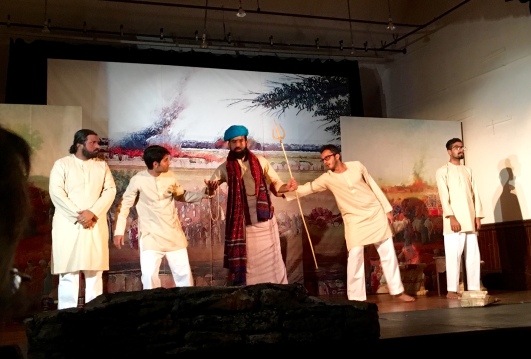
Opening scene from ‘Dagh Dagh Ujala’, at Grace Vision Church, Watertown MA, Oct 24, 2015. Photo: Beena Sarwar
Coming together
The Americans were Fullbright Specialist Kathleen Mulligan, associate professor of Voice and Speech at Ithaca College in upstate New York, her husband David Studwell, an actor, teacher and also a Fullbrighter, and their friend Rob Raines, then Cultural Attache at the US Embassy in Islamabad.
Visiting Pakistan as a Fullbrighter since Aug 2012, Mulligan had become interested in collecting Partition stories and dramatising them. Raines knew a group who would be a potential partner: the Islamabad-based Theatre Wallay (‘theatre people’).
Theatre Wallay (not related to the original Theatrewalay, the now defunct repertory company in Karachi started by famous television actor Rahat Kazmi in the 1980s) members include teachers (Hasan herself runs a school), poets, artists, writers, students and activists.
Mulligan’s idea struck a chord with Theatre Wallay’s Fizza Hasan, a co-founder of the group, and senior member Safeer Khan, who has previously worked with the Lahore-based activist street theatre group Lok Rehas.
“We wanted the same thing,” says Mulligan. “We wanted to get the stories before they were lost to us.”
Hassan, whose family migrated from Panipat, India to Pakistan after 1947, was acutely aware of the need to preserve the stories she heard from family elders. “But I didn’t quite know how to go about it.”
Khan hails from a remote village in Kohat in northwestern Pakistan that was unaffected by the partition – nobody from his family or village had to migrate and no migrant settled in his area.
Busting myths
For group members, like him, the project “opened up an entire new chapter,” he says. The project, which entailed listening to personal stories of partition survivors “changed our perception of the partition completely.”
Even those who had partition survivors in their families and had heard the stories gained a new understanding. They had never paid much attention, or understood how important it was to record these stories.
All of them found the process of obtaining the narratives “intense”.
The production effectively highlights the myths that the narratives shattered, including the idea that Muslims and Hindus were always at daggers drawn.
“We interviewed about 100 people, and almost all of them started their stories by narrating that they enjoyed good relations with their Hindu/Sikh neighbors. In our textbooks, this peaceful co-existence is never mentioned,” says Khan.
Secondly, the narratives broke the myth that people were “dying to migrate to Pakistan”.
“From each story, it is very clear that nobody wanted to leave the land where they were born and raised. They had strong bonds with those areas, and they wanted to stay, but the riots, arson, looting, killings, forced them to leave. Many of them planned to stay away for a while, and thought they would go back when the situation was under control.”
Thirdly, “people from different religious communities living together did not usually attack each other. In fact, they tried their best to protect their neighbors belonging to the other faith.”
On a personal level, interviewers found the experience very challenging. “It was not easy to listen to such stories. We needed to learn to detach ourselves, which was not easy, so that we could look at them from a distance, and select parts which we wanted to turn into monologues.”
Refining the narrative
Mulligan and her former student Sarah Morrisette conducted a week-long workshop in Islamabad with Theatre Wallay members on developing dramatic material from narratives based on interviews with Partition survivors.
Many family elders and others whom group members approached to share their memories were initially hesitant to talk. “Why me? I’m just an ordinary woman/man,” was a common response. Or: “I don’t remember much. I don’t really want to talk about it.”
But as they probed, approaching the issue by asking about childhood memories, the elders started opening up.
Theatre Wallay members then conducted similar workshops at universities and colleges in Islamabad and other cities around Punjab. They taught students to collect stories and create monologues from interviews with family members and others who had survived Partition.
“Almost everyone in Pakistan has a Partition story,” comments Mulligan.
In April 2015, the third stage of the project kicked off when Mulligan and Studwell returned to Islamabad and worked with Theatre Wallay to create an original piece of theatre based on the interviews.
The couple has long been interested in the region. “David lived in India until the age of six,” Mulligan told me after the Boston performance on Saturday. “We had visited India many times together.”
The next step, and the real test, was to perform before audiences in Islamabad and Lahore in April this year. “The show ended to thunderous applause by the audience,” reported the daily Dawn in Islamabad.
“Everything was made to look so real. They showed us how partition truly happened and how dreams were shattered,” said Salman Hyat, an audience member quoted by Dawn. “I did not expect the play to be so good.”
Audience members included Partition survivors who had been interviewed for the project, says Safeer Khan. “They appreciated the play a lot, and were really happy that their stories made it to the final performance.”
The US tour
For the US tour, the actors converted the play’s language, Urdu — various dialects — and Punjabi, into English.
“Translations are difficult,” commented Irfan Malik, a poet, playwright and theatre director from Lahore living in the Boston area who attended the last performance. “Languages have their own idioms, cultural connotations and emotional force.”
The actors’ task was made more difficult by the production’s reliance on monologues compared to on-stage interactions as a dramatic device. The technically sound production features beautiful background music, minimal props and seamless, deftly executed scene changes. Murals from well-known artist Jimmy Engineer’s partition series provide an effective backdrop for the stories that unfold.
The production received prolonged applause from full houses at both its performances at Grace Vision Church in Watertown, MA in the Boston area on Saturday.
“I wish I had brought more friends and family along,” said Aquila Kapadia Aswat from Karachi,daughter of the late famous actor Latif Kapadia in Pakistan, who has lived in the USA for over 30 years. “We need these stories to be told.”
Audiences from the group’s condensed performances and lecture demonstrations at the Boston Conservatory and in Stow, MA, Mulligan’s hometown also attended the show, including her high school drama teachers whom she acknowledged in her opening remarks.
Theatre Wallay’s US tour, starting in the Boston area, ushered the Voices of Partition project into its fifth stage. The packed schedule included a lecture demonstration in the Amherst area on Sunday. The 11 group members participating in the tour have been staying with local host families.
Now at Ithaca College in residency for a week, they will perform there on October 30 and 31.
Other upcoming performances include condensed versions at the State Department in Washington, DC, on November 2, and at George Mason University in Fairfax, VA on Nov 3.
A U.S. Embassy grant and the Fulbright Specialist program have partly funded their trip. The performances and lecture demonstrations are not ticketed but the group is fundraising for 141 Schools, an initiative of The Citizens Foundation (TCF).
TCF is a long-running non-profit organisation that builds and runs schools in low-income areas in partnership with communities. The 141 Schools project will build schools named after the more than 141 children and teachers whom militants killed in the Peshawar attack of December 16, 2014.
Asked if they would like to take the play to India, Fizza Hassan responded, “We would love to.”
Theatre Wallay wants to connect with organisations in India who want to take the idea forward, she said, adding that the Alliance Francaise in Delhi has expressed interest.
The group would like to collaborate with theatre activists in India, but that would “demand a lot of resources, commitment and efforts for us as well as for those who join us from the other side of the border.”
Note: “We raised over 1500 dollars for 141 Schools” – Theatre Wallay in a Nov. 2 update on their Facebook page.
Filed under: Pakistan-India | Tagged: 1947, Dagh Dagh Ujala, Faiz, India, Lok Rehas, Pakistan, partition, poetry, Rahat Kazmi, theatre, Theatre Wallay, Urdu |


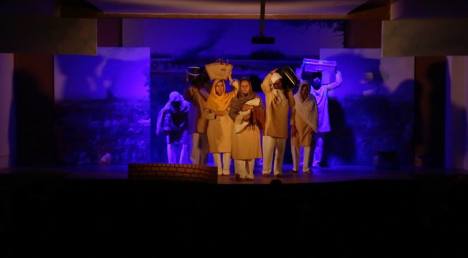
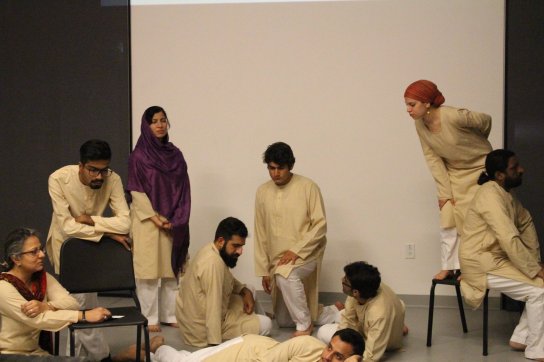
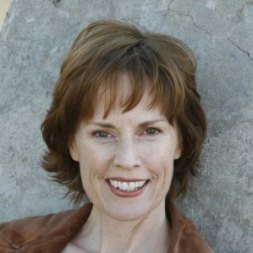
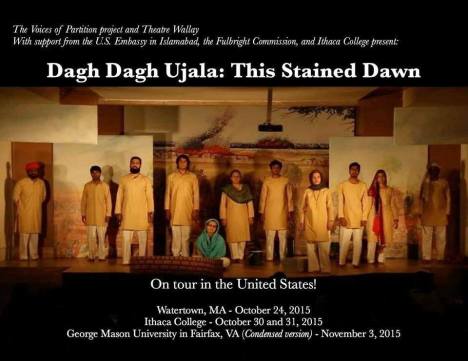
many thanks. very well written.
i was able to see it only after your mother sent me your write up on ruquaiya hassan. i noticed this and read it.
my naughty boy hishaam was part of the group. i am trying to reconstruct his impressions of the US visit.
regards, muzaffar mahmood qurashi
LikeLike
Thank you. It was great to see their play here.
LikeLike
[…] Amateur theatre group from Pakistan tours USA with Partition stories by Beena Sarwar, Journeys to Democracy […]
LikeLike